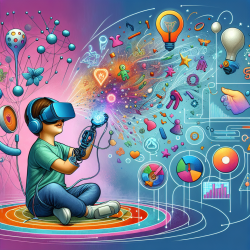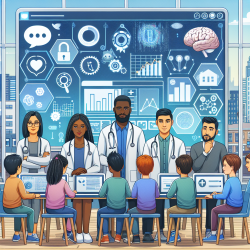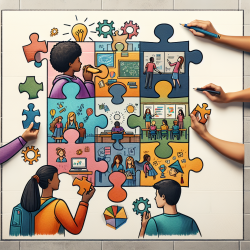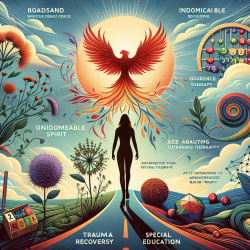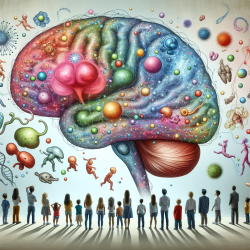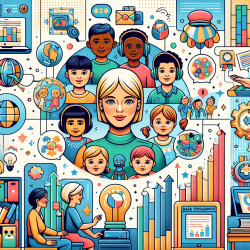Introduction
The COVID-19 pandemic has significantly impacted mental health worldwide, with loneliness being a key concern. This impact is even more pronounced among individuals with visual impairments, as highlighted in the research article "Individual differences in emotional intelligence skills of people with visual impairment and loneliness amid the COVID-19 pandemic." This study sheds light on how emotional intelligence (EI) plays a crucial role in managing loneliness, offering valuable insights for practitioners working with children, especially those with visual impairments.
Understanding Emotional Intelligence and Loneliness
The study utilized the University of California, Los Angeles (UCLA) Loneliness Scale and the Trait Meta-Mood Scale (TMMS) to measure loneliness and emotional intelligence, respectively, among 31 participants with visual impairments. The findings revealed that individuals with higher emotional repair abilities experienced lower levels of loneliness. This suggests that enhancing emotional repair skills can be a pivotal strategy in mitigating loneliness.
Implications for Practitioners
For practitioners working with children, especially those with visual impairments, fostering emotional intelligence can be a game-changer. Here are some actionable strategies based on the research findings:
- Focus on Emotional Repair: Encourage activities that help children identify and manage negative emotions. Techniques such as mindfulness, journaling, and guided discussions can enhance emotional repair skills.
- Promote Social Interactions: Facilitate virtual social gatherings or group activities to help children build connections and reduce feelings of isolation.
- Incorporate Emotional Intelligence Training: Integrate EI training into the curriculum, focusing on attention to feelings, clarity of emotions, and repair of negative emotions.
- Utilize Technology: Leverage accessible technology to provide interactive and engaging EI activities tailored for children with visual impairments.
Encouraging Further Research
While this study provides valuable insights, it also highlights the need for further research. Understanding the nuances of emotional intelligence across different demographics and its long-term impact on mental health can guide the development of more targeted interventions. Practitioners are encouraged to collaborate with researchers to explore innovative approaches to enhance emotional intelligence in children.
Conclusion
Emotional intelligence is a vital tool in combating loneliness, particularly for individuals with visual impairments. By implementing strategies to enhance EI, practitioners can significantly improve the mental well-being of children, paving the way for better outcomes. As we continue to navigate the challenges posed by the pandemic, prioritizing emotional intelligence in therapeutic practices will be essential.
To read the original research paper, please follow this link: Individual differences in emotional intelligence skills of people with visual impairment and loneliness amid the COVID-19 pandemic.



